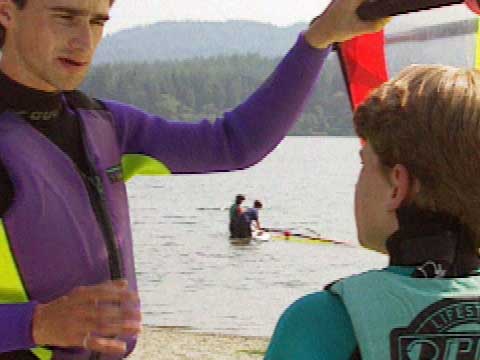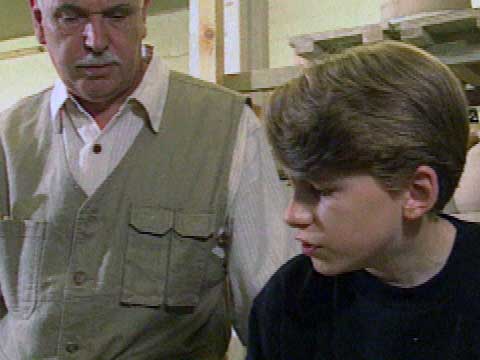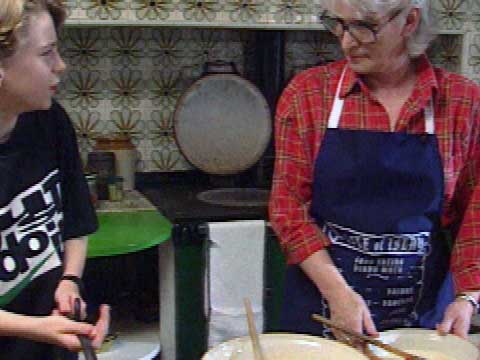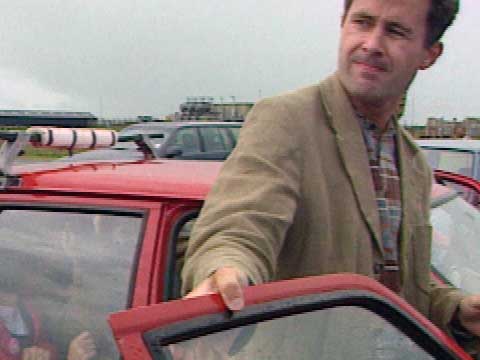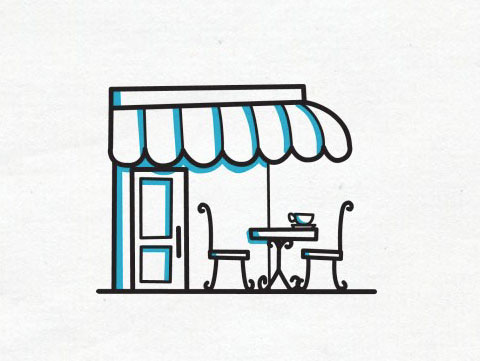Doing things A’ dèanamh rudan
The softer, the betterMar as buige, 's ann as fheàrr
Look out for the following pieces of vocabulary in this clip.
seo an seòl as lugha this is the smallest sail
A direct order such as bi sàmhach! (be quiet!) can be given a little more politely by framing it as a question:
carson nach bi thu sàmhach? why don’t you be quiet?
If carson is left out the meaning changes slightly:
nach ist thu! won’t you be quiet!
A question can also be used as a suggestion:
PersonNeach
GaelicGàidhlig
EnglishBeurla
| Instructor | An tèid agad air snàmh? | Will you manage to swim? |
| Boy | Thèid. | Yes. |
| Instructor | Glè mhath. Bidh thu ceart gu leòr nuair a thèid sinn a-mach air an loch, ma-thà. | Very good. You will be alright when we go out onto the loch, then. |
| Boy | Carson nach tèid sinn a-mach an-dràsta fhèin? | Why don’t we go out right now? |
| Instructor | Thèid sinn a-mach a-rithist. Feumaidh tu seo ionnsachadh an toiseach. Seo an seòl as lugha. Cùm grèim air agus feuch nach tuit thu. | We’ll go out again. You need to learn this first. This is the smallest sail. Keep hold of it and try not to fall. |
| Boy | Carson nach d’ fhuair mise seòl mòr àrd? | Why didn’t I get a large, high sail? |
| Instructor | Tha e nas sàbhailte seòl beag a chleachdadh an toiseach. Nuair a dh’fhàsas tu nas fheàrr, gheibh thu seòl mòr. Nise, cùm grèim air an t-seòl agus cùm do chasan mar seo. | It’s safer to use a small sail at first. When you get better, you’ll get a large sail. Now, keep hold of the sail and keep your feet like this. |
